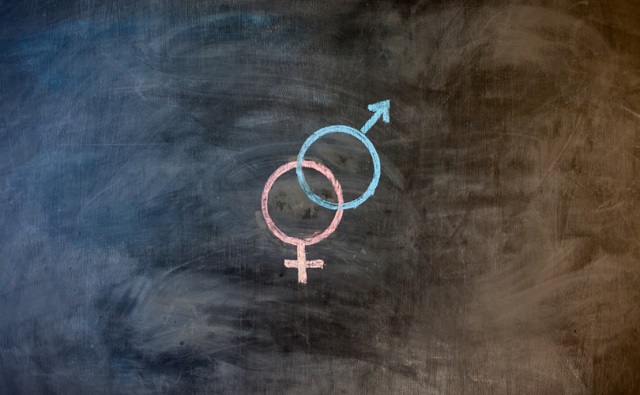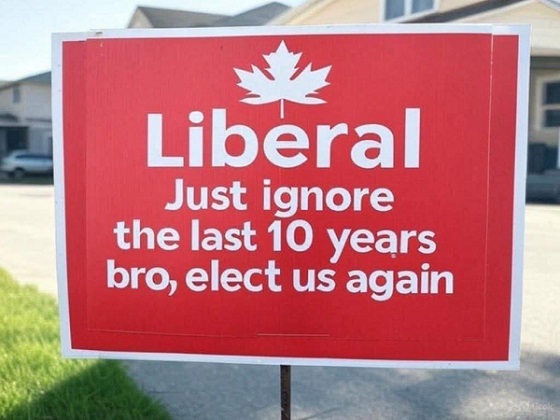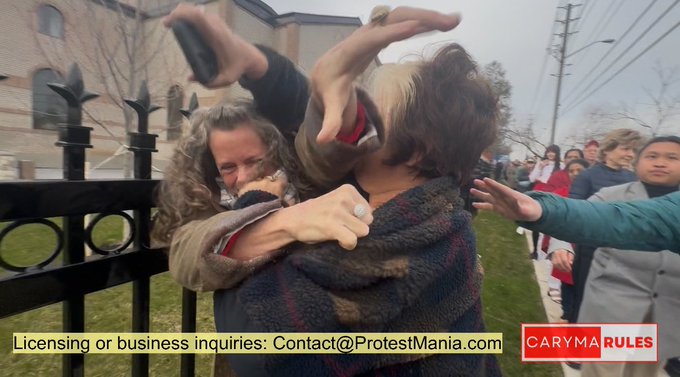Opinion
UK set to ban sex ed for young children amid parental backlash against LGBT indoctrination

From LifeSiteNews
There is undoubtedly a backlash against LGBT ideology unfolding in many Western countries, the source of which includes many ambivalent towards LGBT lifestyles but who are still uncomfortable teaching the ideology to children.
In March, podcaster Joe Rogan paid tribute to his favourite teacher. His seventh-grade science teacher, he noted, “was a brilliant man and he taught me about wonder. I think about that guy all the time.” But now, Rogan said, teachers are frequently fixating on issues of sex and gender. “I don’t want that gang of morons teaching my children about biological sex or gender,” Rogan said, adding that Drag Queen Story Hour is unacceptable for kids. “I don’t want you teaching them about any of those things.”
Instead, he suggested, teachers should focus on history, and math, and… all the things teachers used to focus on.
Rogan’s position on sex education is significant not only because he is the most popular podcaster in the world, but because he has achieved his success because he is a microcosm of the average adult. He is largely libertarian in the “live and let live” sort of way that saw a huge public opinion shift in favour of same-sex “marriage,” which Rogan supports; he is not religious; but he is still very uncomfortable with the full-scale sexualization of our education institutions and the insertion of gender ideology into public school curriculums across the board.
Rogan is something of a bellwether on these issues – he articulates the sort of common sense that many people hold but cannot articulate (or are too fearful to).
The “silent majority” is not a moral majority, but they are uncomfortable with the vast, swift social changes we have seen unfold over the past decade. Much of the backlash against gender ideology and increasingly explicit and instructional sex education in schools comes not from Christians – there are simply not enough of us – but from people who do not have moral objections to LGBT ideology, but do not want it taught to children. In short, most people are fine with adults doing whatever they want to, but they still believe that these behaviours and lifestyles are the purview of adults, not children.
That is why we are beginning to see government action on public school sex education even in the post-Christian United Kingdom. According to a recent BBC report, the U.K. government is planning to ban sex education for children under the age of ten, including a ban on any content about gender identity. Teachers’ unions, predictably, have pushed back, insisting that the proposed plan is “politically motivated” and that there has been no issue with inappropriate material. That claim is laughable; parents have been protesting the LGBT curriculum and other explicit materials for years now, and school staff have frequently responded by accusing them of various phobias.
According to the BBC, the “statutory guidance on relationships, sex and health education (RSHE) – which schools must follow by law – is currently under review. The government believes clearer guidance will provide support for teachers and reassurance for parents and will set out which topics should be taught to pupils at what age.” Sex education is not “typically taught until Year 6,” when children are 10, and “parents already have the right to withdraw” their child, although this has proven difficult to do.
Sex education has been mandatory for older students since September 2020, and the “government strongly encourages schools to include teaching about different types of family and same-sex relationships.”
This curriculum – referred to as “relationships education” – is compulsory and parents cannot remove their children.
The BBC notes that parents have been demanding changes in order to protect the innocence of children, while educators are insisting that the content is necessary because children are exposed to this information online anyway and that it is important for “trusted adults” to contextualize that information. That is the crux of the issue here that few are openly addressing: educators want to “contextualize” this information from the perspective of a pro-LGBT worldview, while many parents do not want this material taught at all because they fundamentally disapprove of the LGBT ideology itself.
There is undoubtedly a backlash against LGBT ideology unfolding in many Western countries, but it is important to recognize the source of that backlash. Although Christians and other religious objectors are certainly part of that backlash, their numbers are not large enough, in most places, to force government action.
The growing discomfort we see in polling data is thus far more likely to be of the Joe Rogan variety – we should live and let live, but we should also let kids be kids. As the U.K. government’s proposed guidance highlights, this means that there will be changes, but not significant ones.
LGBT ideology will still be compulsory for later grades, and state schools will still be teaching state dogmas.
2025 Federal Election
Inside the Convoy Verdict with Trish Wood

From Trish Wood is Critical
Peaceful convoy — violent voters. They convicted the wrong people.
TAMARA LICH, CHRIS BARBER AND THE OTHER TRUCKERS INSPIRED THIS: POLICE AND PROTESTORS HUGGING AND SINGING OH CANADA. THE TRUDEAU GOVERNMENT WAS ALREADY SMEARING THEM AS DANGEROUS.
In April of 2025, one day after the conviction of Lich and Barber for leading a protest with no violence, our politicians and media finally got what they wanted — division, and citizens absolutely hating each other. Watch these videos if you can, over and over again until it sinks in. View the one above and then the one below and decide who is harming the country.
Two middle-aged women had an “elbows up” fisticuffs yesterday near the waiting-to see-Mark-Carney line before an event. As you might figure, I was not surprised and knew violence was coming — not from a terror group and not from truckers. They pit us against each other with the full collaboration of paid-for media. We are broken, brainwashed and angry. We do not understand why our friends, neighbours and family vehemently support ideas that we know will harm the country.
They think we are monsters. And so it goes. Watch and compare to the scene above. And think about who was convicted this week.
Click image to see video
Our ideas can’t be discussed civilly and we must remain in our silos so as not to pose a threat to the elites — the way the Freedom Convoy did. This was Tamara and Chris’ mistake. They brought people together.
Liberals, and I would hazard all contemporary pols are not working to actually make our lives better. They seem to have their own agenda — even Trump whom I had some hope for.
Our lives get worse. They enrich themselves spending money overseas for wars we the people don’t want. And it seems they all walk away from “public service” with mucho brass in pocket.
The video of the fighting women shows the bread and circuses is now us. This ancient Roman idiom is defined as:
Bread and circuses” refers to pacifying people with food and entertainment to prevent them from taking action on civic duties.
During COVID-19, until January of 2022, they thought they had this modus operandi all locked-down. Canadians were compliant and some were even enjoying their marathons of garbage Netflix shows and soggy Door Dash deliveries. We were staying home, staying safe, getting fat and dependant on the government. Except the men and women who worked hard to keep the country running — like truckers. And those of us with a fully operative bullshit detector — you know, actual journalists.
There were many suicides, overdoses and other tragedies. Some of us allowed a sick parent to die alone. Our spiritual health declined and we closed off the part of our brain that safeguards our need for fellowship.
And then the Convoy happened and pulled back the curtain to reveal The Great and Mighty Oz manipulating the whole damn thing.
Yes, the Convoy’s presence in Ottawa was dangerous to the elites but not for the reasons they say. Of course it was disruptive for the citizens. Isn’t that what protests are supposed to be? But many forget that they were indirectly saving lives. I know it because people have told me.
The reason the Convoy had to be dramatically taken down and then punished for three years is because they reminded us – that we could push back and we were not alone. But when tyranny comes, united opposition must be crushed.
In the courtroom on Thursday, Justice Perkins-McVey went out of her way to speak highly of Tamara’s non-stop admonitions to the convoy that they stay peaceful, cooperate with police and put love at the top of their agenda. It was in almost every communication Tamara made to a big, burly group of mostly men who listened and then, even during the police violence were nearly Gandhi-like in their resistance. You can see it in the videos.
John Lennon would have been proud and in fact Imagine was played for the protestors who at one point sang along. But according to Judge Perkins-McVey, Lich’s commitment to keeping the peace will work only as mitigation during sentencing in a couple of weeks. She was found guilty of mischief in a definition so broad it includes everyone no matter what they actually did. I still can’t believe it.
The other revelation, I’m being sarcastic here, is that Chris Barber swears when he is talking to other truckers. I was uneasy that Perkins-McVey read out word-for-word an expletive-filled rant by an exhausted and frustrated Barber in which she herself repeated his words in the courtroom, F-bomb for F-bomb, making him sound like a crude, aggressive person. Which he is not. I could see he was embarrassed as his words were never meant for consumption in a setting like that.
It wasn’t necessary and to me, it felt like a swerve to appease the Crown. I have never heard Chris speak that way in front of civilians, even myself and I have been known to F-bomb in front of him on occasion – a kind of tacit permission that he has never accepted. In the heart of Ottawa, a city beset by gentility, it became clear in Courtroom Five that the subtext might be interpreted as — the crudeness of these working class protestors was an assault on the city’s good name and manners.
For all they did in Ottawa and for the country, Barber was reduced in that courtroom to an angry man who couldn’t control his potty-mouth. Talk about prejudicial. Maybe she was giving the defence a gift for the appeal. I hated it on a visceral level. This was not the kindly, thoughtful judge I had been observing through the course of the trial. How could she not know the affect she was having? Perhaps she did.
Ready for more?
Carbon Tax
The book the carbon taxers don’t want you to read

By Franco Terrazzano
Prime Minister Mark Carney wrote a 500-page book praising carbon taxes.
Well, I just wrote a book smashing through the government’s carbon tax propaganda.
It tells the inside story of the fight against the carbon tax. And it’s THE book the carbon taxers don’t want you to read.
My book is called Axing the Tax: The Rise and Fall of Canada’s Carbon Tax.
Axing the Tax: The Rise and Fall of Canada’s Carbon Tax
Every now and then, the underdog wins one.
And it looks like that’s happening in the fight against the carbon tax.
It’s not over yet, but support for the carbon tax is crumbling. Some politicians vow to scrap it. Others hide behind vague plans to repackage it. But virtually everyone recognizes support for the current carbon tax has collapsed.
It wasn’t always this way.
For about a decade now, powerful politicians, government bureaucrats, academics, media elites and even big business have been pushing carbon taxes on the people.
But most of the time, politicians never asked the people if they supported carbon taxes. In other words, carbon taxes, and the resulting higher gas prices and heating bills, were forced on us.
We were told it was good for us. We were told carbon taxes were inevitable. We were told politicians couldn’t win elections without carbon taxes, even though the politicians that imposed them didn’t openly run on them. We were told that we needed to pay carbon taxes if we wanted to leave a healthy environment for our kids and grandkids. We were told we needed to pay carbon taxes if we wanted to be respected in the international community.
In this decade-long fight, it would have been understandable if the people had given up and given in to these claims. It would have been easier to accept what the elites wanted and just pay the damn bill. But against all odds, ordinary Canadians didn’t give up.
Canadians knew you could care about the environment and oppose carbon taxes. Canadians saw what they were paying at the gas station and on their heating bills, and they knew they were worse off, regardless of how many politicians, bureaucrats, journalists and academics tried to convince them otherwise. Canadians didn’t need advanced degrees in economics, climate science or politics to understand they were being sold a false bill of goods.
Making it more expensive for a mom in Port Hope to get to work, or grandparents in Toronto to pay their heating bill, or a student in Coquitlam to afford food won’t reduce emissions in China, Russia, India or the United States. It just leaves these Canadians, and many like them, with less money to afford everything else.
Ordinary Canadians understood carbon taxes amount to little more than a way for governments to take more money from us and dictate how we should live our lives. Ordinary Canadians also saw through the unfairness of the carbon tax.
Many of the elites pushing the carbon tax—the media, politicians, taxpayer-funded professors, laptop activists and corporate lobbyists—were well off and wouldn’t feel the brunt of carbon taxes. After all, living in a downtown condo and clamouring for higher carbon taxes doesn’t require much gas, diesel or propane.
But running a business, working in a shop, getting kids to soccer and growing food on the farm does. These are the Canadians the political class forgot about when pushing carbon taxes. These are the Canadians who never gave up. These are the Canadians who took time out of their busy lives to sign petitions, organize and attend rallies, share posts on social media, email politicians and hand out bumper stickers.
Because of these Canadians, the carbon tax could soon be swept onto the ash heap of history. I wrote this book for two reasons.
The first is because these ordinary Canadians deserve it. They worked really hard for a really long time against the odds. When all the power brokers in government told them, “Do what we say—or pay,” they didn’t give up. They deserve to know the time and effort they spent fighting the carbon tax mattered. They deserve all the credit.
Thank you for everything you did.
The second reason I wrote this book is so people know the real story of the carbon tax. The carbon tax was bad from the start and we fought it from the start. By reading this book, you will get the real story about the carbon tax, a story you won’t find anywhere else.
This book is important because if the federal Liberals’ carbon tax is killed, the carbon taxers will try to lay blame for their defeat on Prime Minister Justin Trudeau. They will try to say that carbon taxes are a good idea, but Trudeau bungled the policy or wasn’t a good enough salesman. They will try to revive the carbon tax and once again make you pay more for gas, groceries, and home heating.
Just like with any failed five-year plan, there is a lingering whiff among the laptop class and the taxpayer-funded desk rulers that this was all a communication problem, that the ideal carbon tax hasn’t been tried yet. I can smell it outside my office building in Ottawa, where I write these words. We can’t let those embers smoulder and start a fire again.
This book shows why the carbon tax is and always will be bad policy for ordinary Canadians.
Franco’s note: You can pre-order a copy of my new book, Axing the Tax: The Rise and Fall of Canada’s Carbon Tax, here: https://www.amazon.ca/Axing-
-

 2025 Federal Election7 hours ago
2025 Federal Election7 hours agoMark Carney refuses to clarify 2022 remarks accusing the Freedom Convoy of ‘sedition’
-

 2025 Federal Election11 hours ago
2025 Federal Election11 hours agoPoilievre To Create ‘Canada First’ National Energy Corridor
-

 Bruce Dowbiggin9 hours ago
Bruce Dowbiggin9 hours agoAre the Jays Signing Or Declining? Only Vladdy & Bo Know For Sure
-

 2025 Federal Election10 hours ago
2025 Federal Election10 hours agoFixing Canada’s immigration system should be next government’s top priority
-

 Daily Caller8 hours ago
Daily Caller8 hours agoBiden Administration Was Secretly More Involved In Ukraine Than It Let On, Investigation Reveals
-

 2025 Federal Election2 days ago
2025 Federal Election2 days agoPoilievre promises to drop ‘radical political ideologies’ in universities
-

 Business2 days ago
Business2 days agoTrump’s ‘Liberation Day’ – Good News for Canadian Energy and Great News for WCSB Natural Gas
-

 2025 Federal Election2 days ago
2025 Federal Election2 days agoWill Four More Years Of Liberals Prove The West’s Tipping Point?




